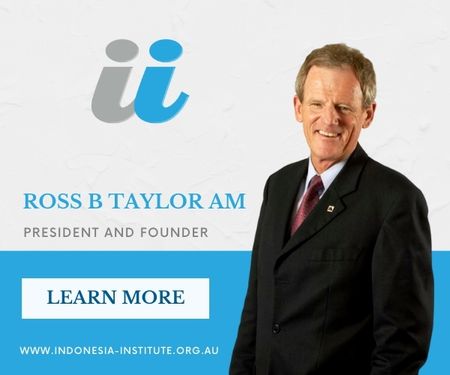BY: ARON CORBETT
Indonesian President Joko “Jokowi” Widodo unveiled an ambitious vision for an expanded economic partnership with Australia during his three-day visit to Sydney this week.
He demonstrated the importance he placed on this trip by bringing with him a high-powered delegation, including two coordinating ministers – Coordinating Economic Minister, Airlangga Hartarto, and the powerful Coordinating Maritime Affairs and Investment Minister, Luhut Pandjaitan – as well as a host of other senior ministers, including Foreign Minister, Retno Marsusdi.
His statement at the annual leaders’ summit was short. He offered little commentary on a tense geopolitical environment, except to reiterate Indonesia and ASEAN’s commitment to a peaceful and stable region. The rest was all about business.
He called for optimisation of the Indonesia-Australia Comprehensive Economic Partnership (IA-CEPA – the bilateral trade agreement), Australian investment in Indonesia’s planned new capital city, and deeper cooperation with Australia on carbon reduction and green energy smelters.
But the centrepiece was a call for closer collaboration with Australia on the manufacture of electric vehicle (EV) batteries.
An EV partnership looks good on paper. Both nickel and lithium are critical minerals for the manufacture of EV batteries. Indonesia accounts for 37% of the world’s nickel production. Australia accounts for 53% of the world’s lithium. The lion’s share of Australian lithium is being exported to China but Australia is intent on reducing its heavy economic reliance on China through diversification into other emerging markets.
But in contrast to Jokowi, Australian Prime Minister, Anthony Albanese was more circumspect. In his opening remarks at the leaders’ meeting, he referenced difficult geopolitical circumstances and the need to cooperate on regional security, perhaps with an eye to the Labor rank and file who are uneasy about AUKUS. He reiterated ASEAN centrality and the territorial integrity of Indonesia, to counter what some have called a growing strategic divergence between the two nations in the wake of the AUKUS.
In his public statement, Albanese put the economy front and centre, although he did not embody the same impatient ambition as Jokowi. He highlighted some trade and investment gains under IA-CEPA. He announced improved visa access for Indonesians, a step towards soothing a long-term bilateral irritant. And he celebrated deepening education links, a mainstay of Australian trade with Indonesia, referencing plans for three new Australian university campuses in Indonesia.
Albanese also welcomed future collaborations with Indonesia on climate action – through a $50 million program for startups – and collaboration on EVs, but was not drawn on what shape this would take.
Some commentators have poured cold water on an EV partnership, citing Australia’s own downstream processing ambitions.
Others have questioned the logic of an Indonesian EV industry that charges batteries with electricity generated by dirty coal-fired power stations, given Indonesia’s slow deployment of renewable energy.
Elements of the Australian security community might also have apprehensions about an EV partnership with Indonesia. China is fast emerging as the lead stakeholder in the Indonesian EV supply chain and it has already bankrolled several major nickel smelters and processing facilities. In this context, any EV partnership with Indonesia would be susceptible to criticisms of being a backdoor investment in China.
Jokowi will finish his term as president next year, but his popularity will ensure he remains a player in Indonesian politics after he leaves office. With the sun setting on his presidency, his visit was partly a mission to future-proof key priorities of his National Long-Term Development Plan, which aims to make Indonesia an innovative high-income country by 2045. This is heartening for Australia – it shows Indonesia sees it as a partner in its future.
Certainly, better economic integration with Indonesia could help reinvigorate the Australian economy. It could also strengthen regional peace and stability by embedding our economy within a broader regional network of interdependent supply chains.
But the challenge for Albanese will be growing Australia’s economic relationship with Indonesia, without overpromising. This will not be easy. Indonesia has been the centre point of Labour’s foreign policy since the days of Hawke-Keating, but trade and investment relations between the two countries are still weak – ‘underdone’ is the standard description. IA-CEPA took a long time to negotiate and is yet to deliver a significant boost to bilateral business links.
Automotive industries require enormous amounts of capital invested over long-term horizons. If live cattle and French submarines have taught Australia anything, it’s that policy flip-flops can be very costly, diplomatically.
Certainly, Albanese’s economic diplomacy with Indonesia needs ambition, but it also needs to be realistic and very carefully considered – grand statements about improving Australia-Indonesia relations are nothing new, but outcomes have historically been hard fought.





